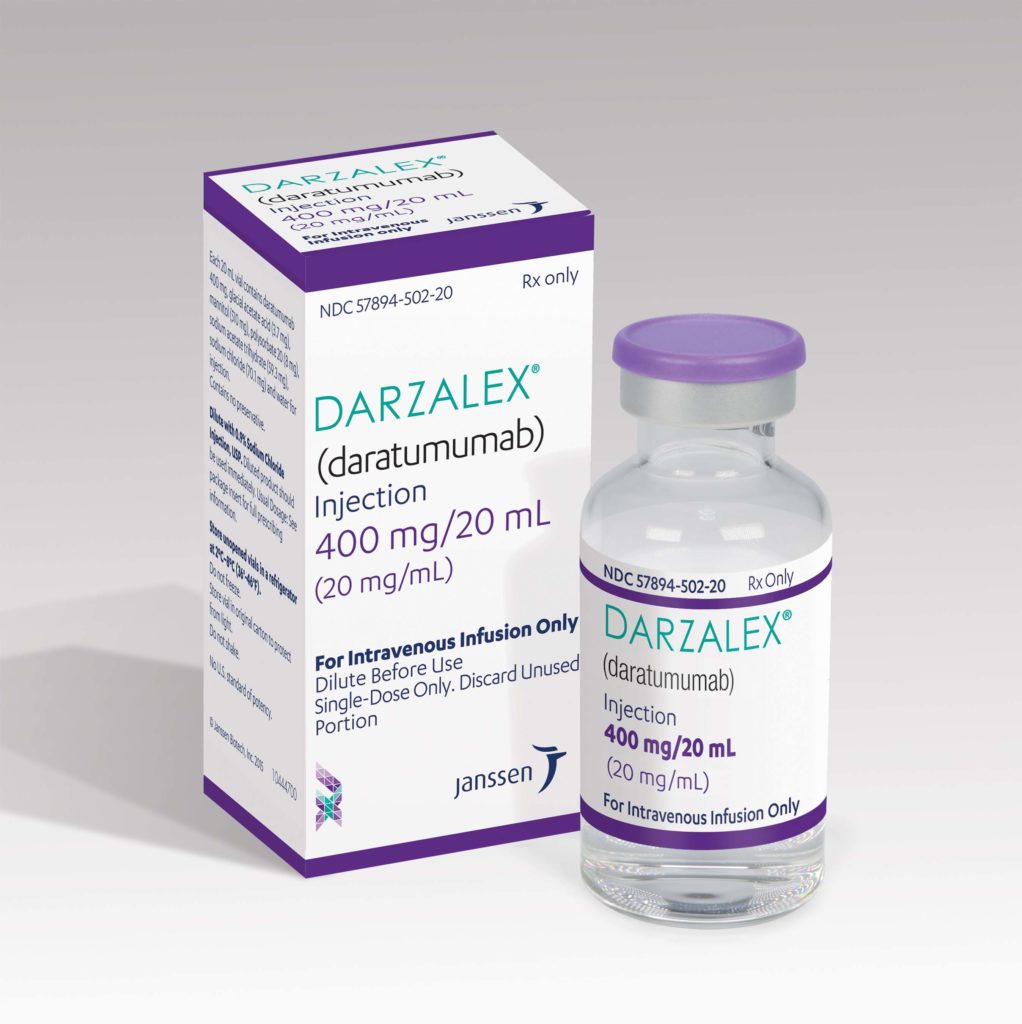Daratumumab – first new myeloma agent PBAC-recommended in years
For the first time in 13 years, a new agent with a different mode of action against myeloma, daratumumab (Darzalex®), has been recommended for Pharmaceutical Benefits Scheme (PBS) reimbursement.
At the July 2020 meeting of the Pharmaceutical Benefits Advisory Committee (PBAC), daratumumab received a positive recommendation for PBS listing as a second line treatment, in combination with bortezomib (Velcade®) and dexamethasone for patients with myeloma.
In a submission to the PBAC in June 2020, the Leukaemia Foundation provided consumer comments in relation to daratumumab, based on the everyday experiences of people living with myeloma.
Peter, a myeloma patient from Western Australia, said:

The Leukaemia Foundation’s submission also stated that, based on the summary clinical trial information provided, “we understand daratumumab-based combinations have demonstrated efficacy in comparison to other agents tested in head-to-head relapsed or refractory myeloma trials in terms of delaying disease progression and response rates, and have also been shown to lead to molecular remissions in a greater number of patients with relapsed multiple myeloma”.
The PBAC noted in its recommendation that daratumumab monotherapy would be provided by the sponsor (Janssen), on a compassionate basis, to all eligible relapsed and/or refractory (R/R) myeloma patients who have no other PBS-funded treatment options.
A study, published in an August 2020 online issue of Journal of Hematology & Oncology, confirmed and extended the previously known effectiveness and tolerability of daratumumab plus standard of care (bortezomib/dexamethasone) as a treatment for R/R myeloma.
The Leukaemia Foundation also made a submission to the PBAC for carfilzomib (Kyprolis®).
“We received eight responses to the request for feedback on this submission,” said Emily Forrest, the Leukaemia Foundation’s Head of Policy and Advocacy.
“Views amongst patients and their families/carers were mixed, with some concerned about the side-effects of the treatment,” said Emily.
“There is a high unmet need for new treatments for myeloma, which is currently an incurable disease which becomes progressively harder to treat after each relapse as patients become refractory to different treatments.
“We believe that the listing amendment for carfilzomib would provide clinicians with additional choice in therapy regimens for patients with refractory myeloma.”
Carfilzomib also received a positive recommendation to amendments to the dosing regimen and a change to a streamlined authority level, as sought by the sponsor (Amgen Australia).
Emily said the Leukaemia Foundation would provide submissions to the PBAC for consideration at its November 2020 meeting for elotuzumab (Emplicit®) and ixazomib (Ninlaro®) for patients with R/R myeloma.
Read Shirley Irwin’s experience with myeloma and a range of treatments including carfilzomib and daratumumab. (add link to story)
Last updated on February 22nd, 2022
Developed by the Leukaemia Foundation in consultation with people living with a blood cancer, Leukaemia Foundation support staff, haematology nursing staff and/or Australian clinical haematologists. This content is provided for information purposes only and we urge you to always seek advice from a registered health care professional for diagnosis, treatment and answers to your medical questions, including the suitability of a particular therapy, service, product or treatment in your circumstances. The Leukaemia Foundation shall not bear any liability for any person relying on the materials contained on this website.